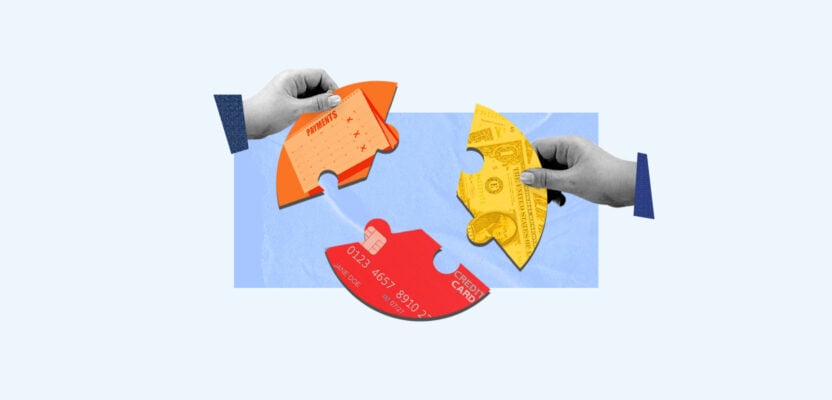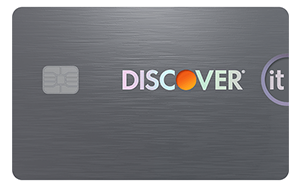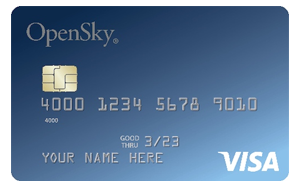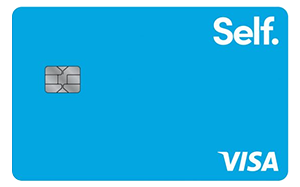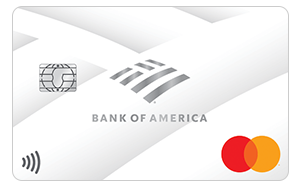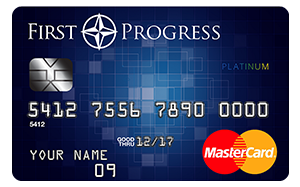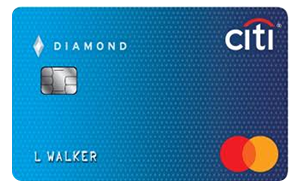The 3 types of credit accounts
A credit account is an agreement you have with a lender in which they allow you access to funds on the condition that you repay the borrowed amount within a specified period. Credit allows you to immediately obtain goods or services and pay for them later.
Broadly speaking, there are three types of credit accounts:
- Installment accounts
- Revolving accounts
- Open accounts
Each type of account works differently.
1. Installment accounts
An installment account, also referred to as a closed-end credit account or installment loan, is a lump sum that you borrow and then repay in installments over a specified period. Examples of common types of loans include student loans, auto loans, and mortgages.
Installment loans can be either secured or unsecured. A secured loan requires you to put forth collateral, such as a monetary deposit or a valuable asset, that your lender can seize if you default on your payments.
An unsecured loan, on the other hand, isn’t backed by collateral. Because unsecured loans involve more risk for lenders, they generally have stricter credit score requirements and higher interest rates. 1
Installment accounts tend to involve larger amounts of money than other types of credit accounts. For this reason, the application process is often more difficult, and you’ll need to submit more information.
When you take out an installment loan, expect to make regular monthly payments until you’ve paid off the loan. A portion of each payment will go toward repaying the borrowed amount (also known as the principal), and the rest will go toward paying off the interest. Once you’ve completely paid off the principal, your installment account will close.
2. Revolving accounts
Revolving credit, or open-ended credit, is different from installment credit. Instead of receiving a single fixed amount and making regular monthly payments, you get approval to repeatedly borrow up to a pre-set limit. Any amount you don’t repay in a given month “revolves” into the next month’s bill, usually with added interest.
If you have a revolving account, your balance and monthly payments won’t be fixed. You can keep borrowing and making payments up to your limit. Most of the time, the account will remain open until you decide to close it.
Credit cards are the most well-known example of revolving credit. Revolving accounts tend to have higher interest rates than other types of credit, but the exact interest rate depends on what your lender is willing to offer you based on your credit history.
As with installment credit, some accounts are secured with collateral (e.g., secured credit cards), and others are unsecured (e.g., unsecured credit cards).
| Credit Card | Best For | Credit Score | Annual Fee | Welcome Bonus | |
|---|---|---|---|---|---|
| Secured Overall | 300–669 | $0 | Cashback Match | ||
| No Credit Check | 300–669 | $35 | |||
| Beginners | 300–669 | $25 | |||
| No Annual Fee | 300–669 | $0 | |||
| Bad Credit | 300–669 | $49 | |||
| Rebuilding Credit | 300–669 | $0 | |||
Pay attention to credit utilization on your revolving accounts
Credit utilization, the percentage of your credit limit that you use, accounts for 30% of your FICO credit score. To build and maintain a good credit score, many experts recommend keeping your utilization under 30% of your total credit limit. According to VantageScore, a single-digit utilization rate is ideal. 2
3. Open accounts
Open accounts share some of the features of revolving and installment credit. When you have an open account, you repay the debt in full at the end of each billing period, although the amount you pay varies.
The most common examples of open credit accounts include accounts for home utilities and services, such as internet, cell phone services, and cable. Charge cards are also open accounts, although, as CNBC notes, the credit scoring models group them along with your revolving accounts when calculating your score. 3
Open accounts never accrue interest, and they generally won’t appear on your credit report unless you have a late payment, with the exception of some charge cards. Charge cards also don’t usually contribute to your credit utilization, so their impact on your score is fairly limited. 4
How the 3 types of credit affect your credit mix
You may have heard people talk about types of credit in the context of credit mix, which refers to the variety of different types of credit accounts you have on your credit report.
Both of the main credit scoring models (FICO and VantageScore) take your credit mix into consideration when producing your credit score. They reward you for having both installment and revolving accounts on your report. Some or all of the models may further distinguish between different types of installment accounts, such as mortgages and personal loans. 5
Because open accounts don’t usually appear on your credit report, they’re not something you need to worry about if you want to improve your credit mix.
How credit mix affects your credit score
Credit mix is a relatively minor factor when it comes to the calculation of your credit score.
In FICO’s model, it accounts for approximately 10% of your score. VantageScore groups it together with the age of your accounts in their Depth of Credit category, which accounts for 20%–21% of your credit score (depending on the version of the model being used). 6 7 8
Having a solid credit mix isn’t a requirement for a good credit score, but it helps. When you have a good mix of both installment and revolving credit accounts and keep those accounts in good standing, you’re demonstrating your ability to successfully manage different types of debt.
Refrain from opening too many accounts
You may be wondering if you should take out a new loan or credit card to improve your credit mix. This can sometimes be worthwhile, but it comes with significant downsides.
Having too many recently opened accounts could indicate to lenders that you’re in financial distress and make them more likely to reject your applications for new credit.
What’s more, even the best credit mix won’t be enough to compensate for a bad payment history, which is the most important factor influencing your credit score. If you have a damaged credit score, it’s generally more important to pay off your old debts and dispute any errors on your credit report before worrying about your credit mix.
If you’re interested in opening an installment loan to round out your credit mix, consider applying for a credit-builder loan, which is a type of credit account that’s designed specifically to help you improve your credit score.
Takeaway: The three main types of credit are installment, revolving, and open accounts.
- Installment loans are lump sums that you borrow and repay in fixed installments. Common examples are auto loans, student loans, and mortgages.
- Revolving accounts, like credit cards and retail cards, allow you to repeatedly borrow small amounts. They usually have higher interest rates than installment loans.
- Open accounts (e.g., utility, internet, and cable accounts) allow you to borrow an undetermined amount without interest as long as you repay it in full at the end of the billing period.
- Credit mix refers to the variety of accounts you have. It determines roughly 10% of your credit score.
- Opening new accounts hurts your credit in the short term, so carefully consider whether it’s worth it to open a new account just to improve your credit mix.
